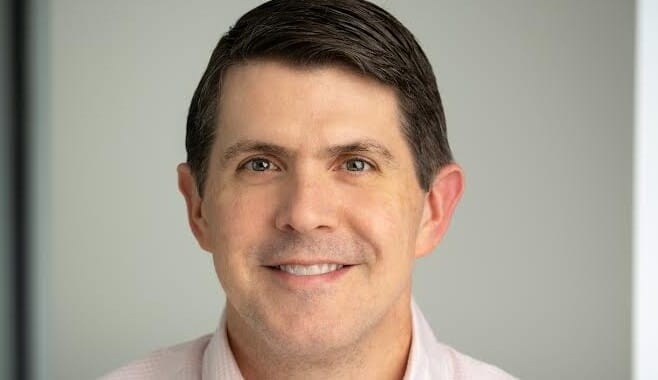North Carolina’s new Republican state treasurer Brad Briner believes he has moved a step closer to overhauling enduringly weak investment performance at N.C Retirement Systems by ditching the sole fiduciary model for a five-person board of trustees.
Legislators recently approved a new governance model that Briner is convinced will open the door to the $127 billion North Carolina Teachers’ and State Employees’ Retirement System’s (TSERS) ability to take more risk and earn higher returns. It’s a message he sold hard in his campaign rallying call to North Carolina’s beleaguered employers, whose contributions have steadily risen in support of the pension fund, and the state’s retirees, who have had no COLA adjustments for years.
But North Carolina’s pension fund beneficiaries may have less influence on the new, five-member board than the state’s taxpayers. There will be no board representation for beneficiaries, and North Carolina’s politicians will get to decide the makeup albeit with a keen focus on hiring investment experts. Briner is chair and will also appoint one member while the other trustees will be selected by elected politicians comprising the Governor, House speaker and president of the Senate.
Briner is also loath to expand the board because he believes a small board preserves the best features of the sole fiduciary model: decisiveness.
“Decisiveness is endemic of good investment decision making,” says Briner, speaking to Top1000funds.com from North Carolina’s Raleigh investment offices.
Moreover, unlike other public pension fund CIOs who argue that pension plan trustees’ only obligation is to beneficiaries, Briner believes that taxpayers and beneficiaries are two sides of the same governance coin.
He believes the pension fund’s new trustees can wear two hats and represent both beneficiaries and taxpayers and taxpayers are just as important [as beneficiaries] because they are on the hook for poor returns from the pension fund.
“It’s the education piece I am always surprised more people don’t know,” says Briner who studied governance models at public pension funds in Virginia and Florida particularly, and whose investment experience includes a decade as co-CIO for Willett Advisors which manages the philanthropic and personal investments for Mike Bloomberg.
“To the extent the pension trust is exhausted, the pension obligations we incur in the state are the liabilities of the taxpayer. If you are a retiree in the state, you should feel great that the pension system is 89 per cent funded but feel even better because taxpayers have your back too. We pay those obligations under every scenario and the flipside as a taxpayer is that you can’t just be academically aware of this. You need to know if the trust is exhausted you are on the hook. The employer contribution, now over 17 per cent for our state, is coming from your tax dollars and there are ways to lower that by investing properly and ways to raise it by investing poorly – something we’ve been doing a lot. Enough with finishing last and burdening the taxpayer; enough with impoverishing retirees, let’s get this right,” he says.
North Carolina’s three, five and 10-year annualised net returns ending June 2024 came in at 1.9 per cent, 5.6 per cent and 5.6 per cent respectively.
Trustee competence assured
Briner says trustee competence will be assured by all candidates meeting certain stipulations.
They must have a minimum of 10 years of successful investment management and boast a record that demonstrates their passion, professionalism and technical expertise. Briner is looking for CIO-level candidates that come “purely from the buy side” to avoid any conflict of interest, and he says there will be no pandering to diversity in the selection process either.
“We want people who bring different perspectives and speak their mind, but I am indifferent to the exact physical package that comes in.”
Nor will there be any compensation.
Asking new trustees to volunteer ensures North Carolina won’t get people “for the wrong reasons” and he believes there are enough experienced candidates with subject matter expertise who are committed to the success of North Carolina to help.
“In the endowment world, many large boards are uncompensated, peopled by experts willing to serve. The job requires a couple of hours a week at most and their presence at big meetings quarterly.”
Increasing the risk
One of Briner’s key complaints with North Carolina’s sole fiduciary model is that it has prevented risk taking. He argues that because previous incumbents have been directly accountable for the performance, oversight and management of the portfolio they have been risk averse.
“The extreme public scrutiny that comes with the sole trustee model leads to risk aversion. A sole fiduciary will go to great lengths not to lose taxpayers money, yet over-reacting to short term downturns in the capital markets is expensive.”
Moving to a board model will allow the investor to be more methodical and executional and will introduce firm policies over “emotionally driven individual decisions.”
The new governance structure also shakes off the towering legacy of Harlan Boyles, state treasurer between 1977 and 2000, in office for a total of 25 years during which period he was re-elected five times. North Carolina’s large allocation to fixed income, maintained by subsequent treasurers, was a hallmark of his investment strategy.
“Harlen Boyles was a larger-than-life treasurer who did a fantastic job for the state,” reflects Briner. “He had a large allocation to fixed income that had always worked because base rates were higher. However, when base rates hit zero the pension fund remained stuck in the old orthodoxy because ever since everyone has looked back and said, ‘Harlan did it right and we need to do the same.’
First out of the gate Briner wants to increase the allocation to sub investment grade fixed income from 7 per cent and reduce investment grade fixed income, currently 33 per cent. He also wants to pare back on the 4.5 per cent allocation to cash, out of whack with a net spend of less than 2 per cent and North Carolina’s ample sources of liquidity.
New allocations will include mortgages that will either sit in opportunistic fixed income or real estate.
As for private assets, he’s in no rush to develop an allocation to private credit or “dive” into more private equity just yet.
“I’m conscious that while interest rates have gone up on the average leveraged private transactions, entry multiples for equity have not declined and this is a challenge of basic maths for private equity.”
He says it’s possible for investors to find exceptions to that average in allocations like LP secondaries and says leading GPs are more open to dialogue in the current environment.
As well as adjusting the allocation, Briner wants to update the legal list which prescribes which asset class North Carolina can and can’t own, untouched for 15 years.
He also plans to build out the investment team that has been whittled down to 19 from a high of 45. An empowered team under the revived leadership of former CIO Kevin SigRist, who Briner has brought back to lead on investment will be supported by a new investment authority backed by policies, procedure, staff and IT, supported by a budget set by the board.
“I knew I could make a difference in a way that mattered, and I wanted to run for it,” concludes Briner. “In reality people are not paying as good attention to the pension systems as they should, they matter tremendously, not just to the people involved in the retirement system, but to every taxpayer in the state.”


